At the Humanist Society (Singapore), we care for your well-being. Life has its challenges, but you don’t have to suffer alone. Together as a community, we will walk together in our journey to be healthier, and happier.
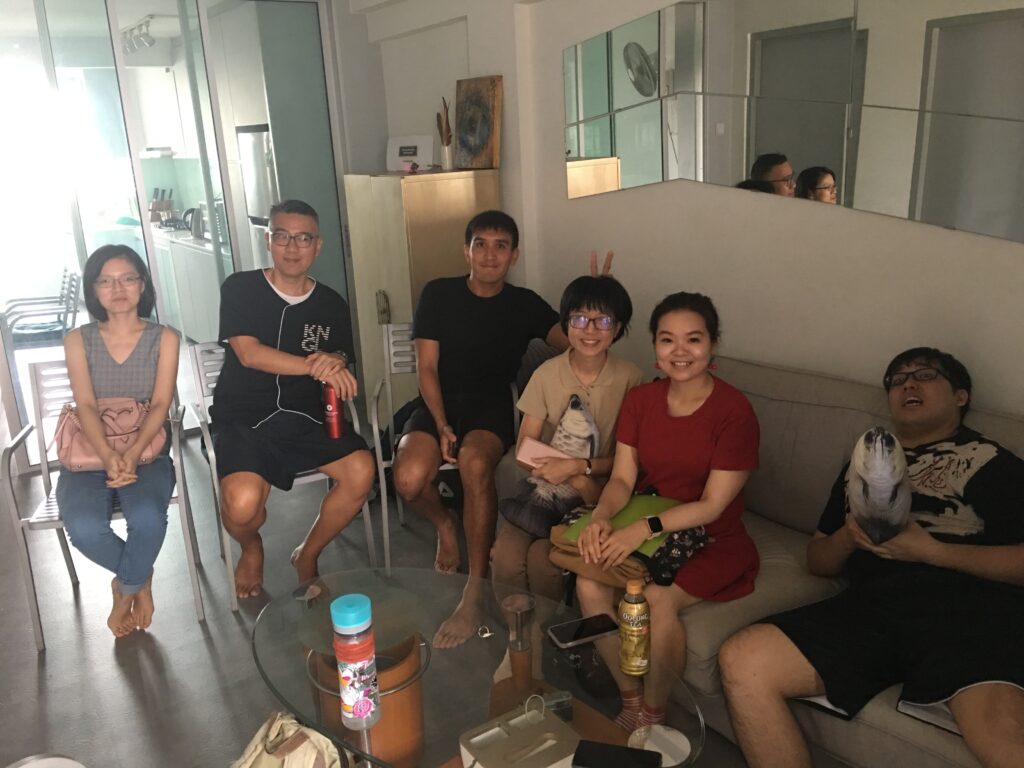
Since November 2018, the Humanist Society (Singapore) has been running a Peer Support Group (PSG) with monthly meetings (above). At these meetings, participants learn about humanism, share about their lives, and provide emotional and psychological support to each other. The meetings would take place at members’ homes, dance studios, and food outlets. During the first Covid-19 lockdown, we also held a couple of online meetings.
PSG relaunched
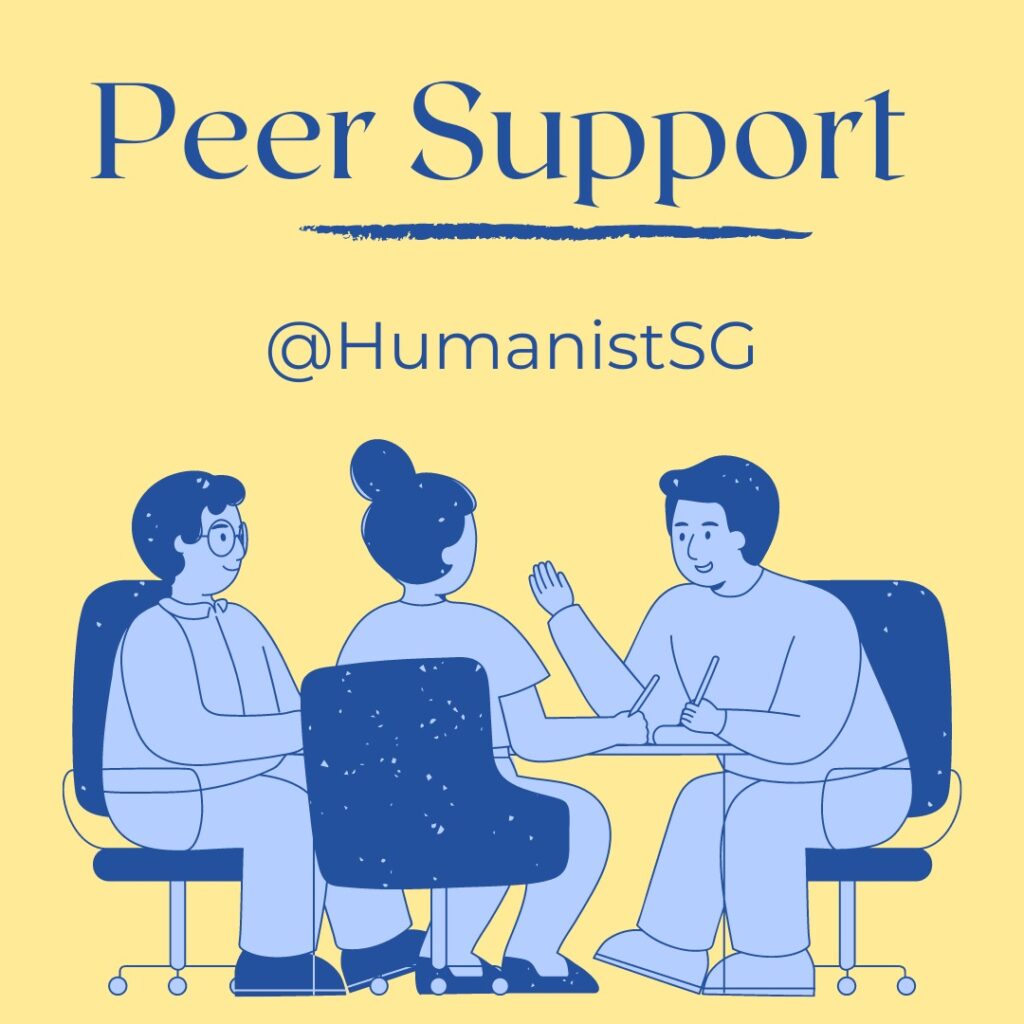
In Jan 2021, the PSG took a four-month pause to revamp itself. Facilitators from the Humanist Society EXCO worked hard to scour best practices from peer support programmes from around the world, ranging from peer help programmes at NTU, to mental health portals by various companies, and peer support guides from the US universities such as the University of Kansas (community tool box).
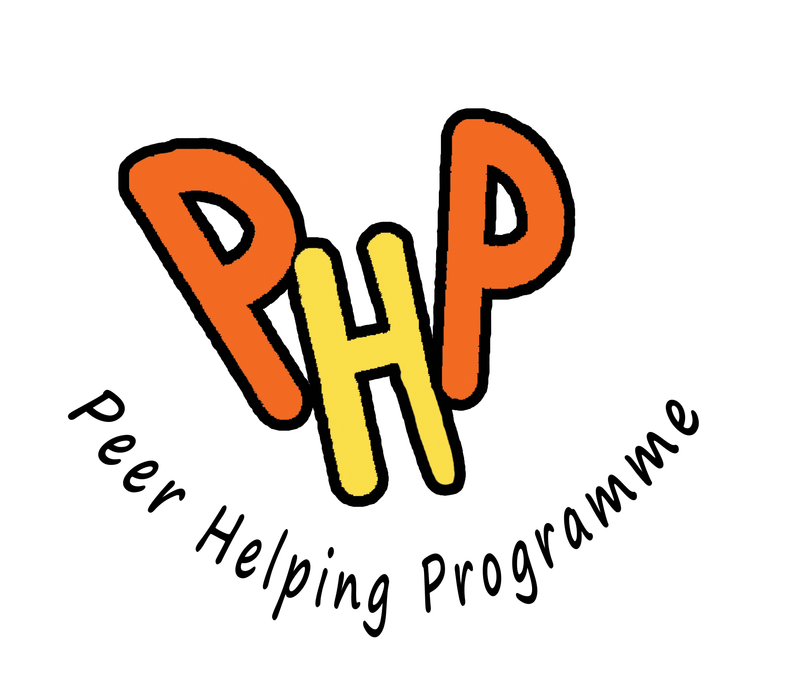
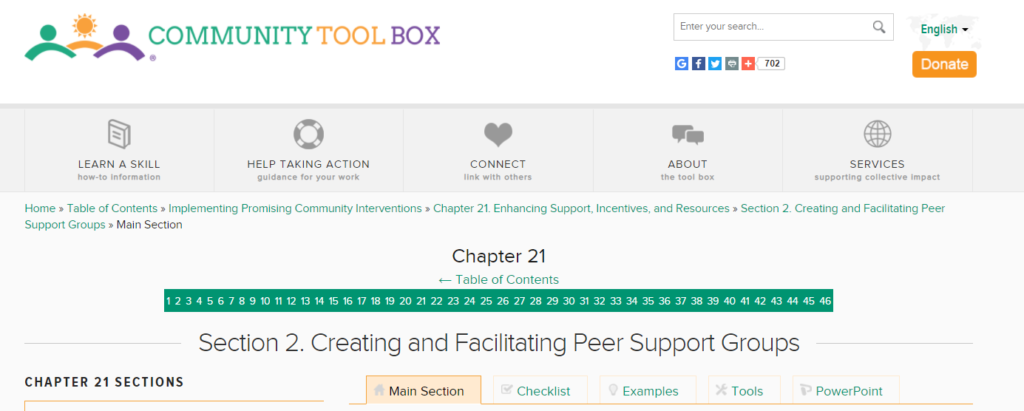
In May 2021, the Humanist Society relaunched PSG with a new programme to better serve the needs of the participants. In this new PSG, we share our mental wellness journeys in a private and safe environment curated by facilitators. People with an interest in mental wellness, including psychologists and psychiatrists, are also invited to join to discuss issues facing the industry. In addition, we have a new logo for ourselves!

And also a new mental wellness portal!

We held our first revamped PSG on 30 May 2021. Although facilitators really preferred a face-to-face meeting, due to rise in Covid-19 cases, we had no choice but to shift online to Zoom.
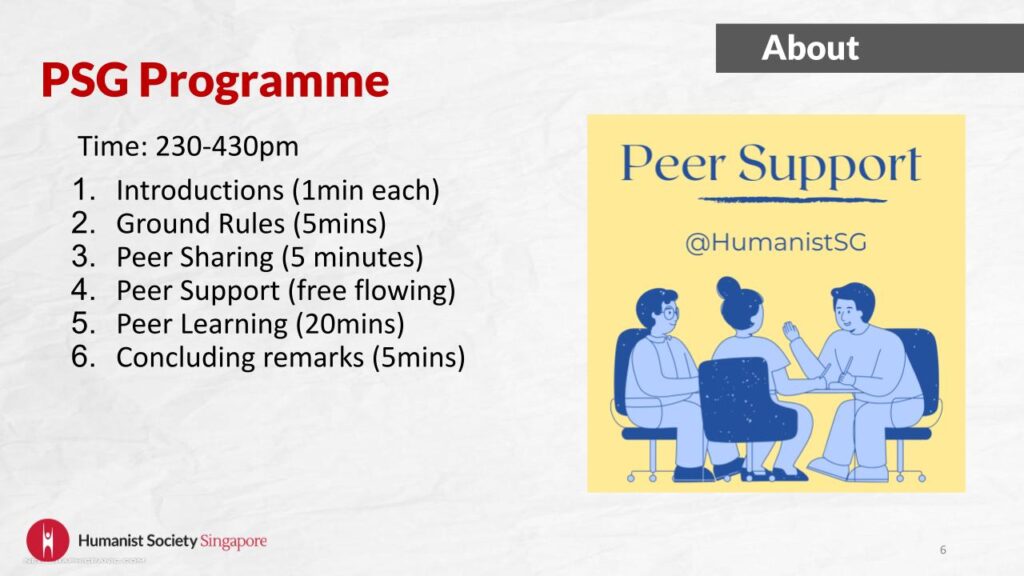
Setting our shared expectations
We started our meeting with some verbal introductions, and then we began to discuss our shared expectations of discussions. We asked everyone to share what they think “makes a good discussion”, so the ground rules are devised from the ground-up. Two of the most common expectations raised were mutual respect and open-mindedness. Facilitators also stated that all sharing is strictly confidential. Then we wrote the ground rules down to ensure fairness and transparency.
Peer sharing
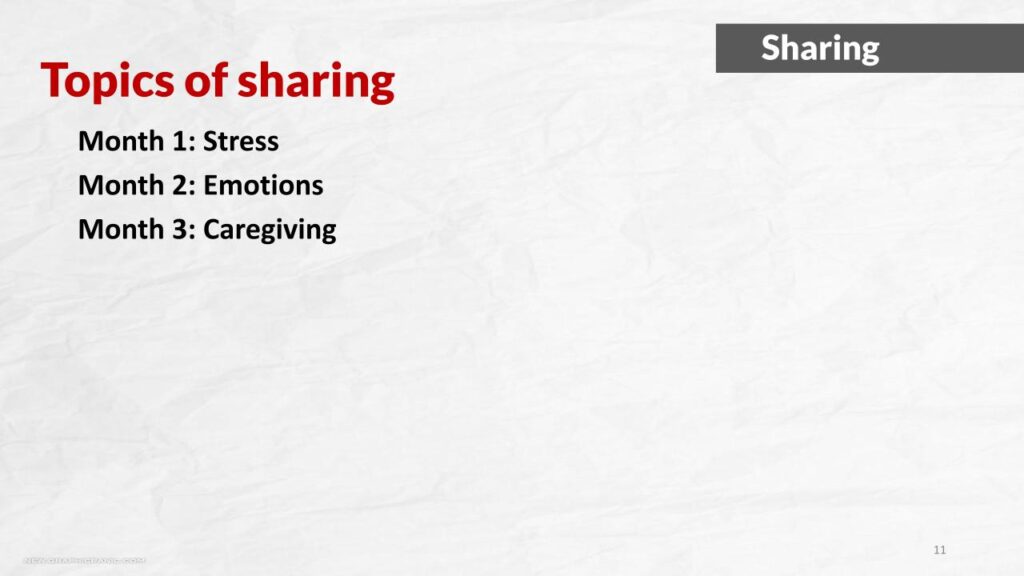
The peer sharing programme consists of 3 generic themes – stress, emotions and caregiving – which will be gone through in a three-month cycle in three PSGs. Since this was the first month, we began to discuss any stress that we felt recently. The facilitators asked:
- How has the past week been?
- Did you feel stressed at any point of time and what caused it?
- How did you deal with the stress?
- How can we better support each other throughout this period?
Participants began to share about their personal journeys and coping mechanisms, especially throughout the challenging Covid-19 period. Some observations:
- One encouraging thing was most people already have some coping mechanisms in place, and their methods are diverse.
- Some listened to music, some did their favorite things.
- Many formed personal principles and philosophies centering around self-reliance, which can take the form of encouraging phrases and thoughts they give themselves.
- Some had a history of depression, but are accepting of it in a very mature way, and have been seeking professional help for years.
Facilitators actively encouraged fellow participants to show support to the person disclosing his thoughts. Common experiences were shared, and different ways of coping were exchanged. One participant described it as an “eye opening experience”.
Peer learning
The new PSG has a year-long peer learning schedule, where participants will learn about 1 mental disorder every session, and learn 1 fact about Singapore’s mental health support system. After 12 months, the entire cycle will repeat itself, so anyone who joins PSG for 1 year will have a holistic view of mental health.
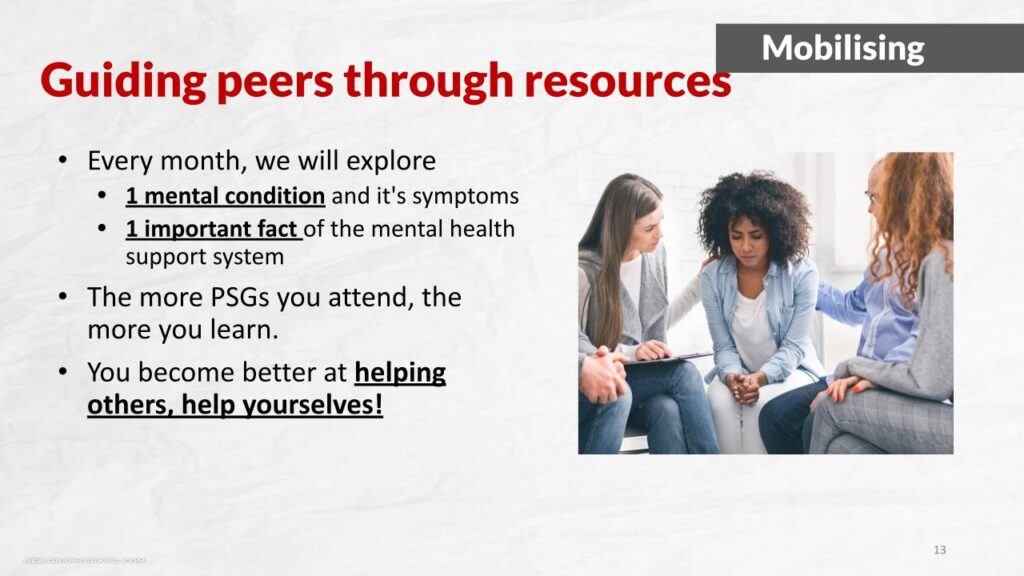
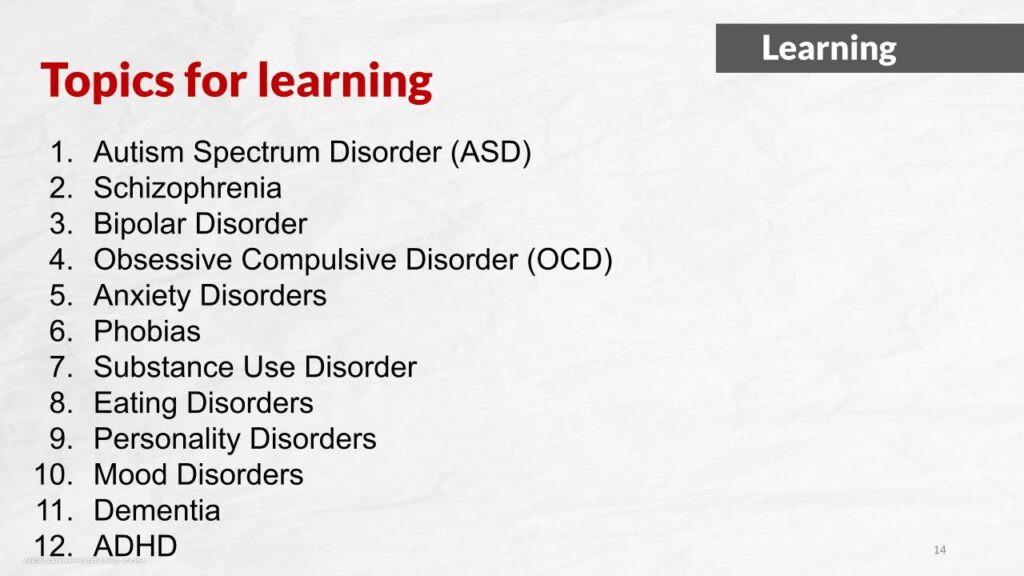
Together, over time, we will learn more and more about mental health issues, become better peer supporters, and dispel misconceptions surrounding mental health in Singapore.
At the peer learning, we took 10 minutes off to watch some videos about autism, following up with a quick discussion of what we have learnt. After that, the facilitator shared a screen and explored some existing resources on the IMH website.
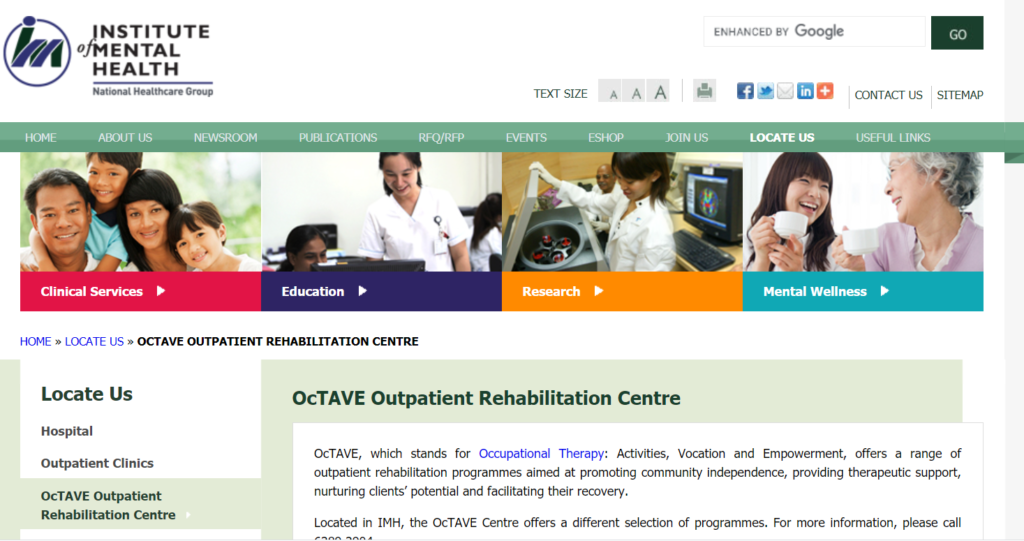
Interesting things we found on the IMH website was that there’s considerable support for the unemployed. This is especially important as Covid-19 lockdown has resulted in severe disruptions in industries, leading to growing numbers of jobseekers in the market.
For example, the OcTAVE Outpatient Rehabilitation Centre offers Vocational Rehabilitation. The programme equips clients with the skills relevant to an industry, and to facilitate reintegration into competitive employment.
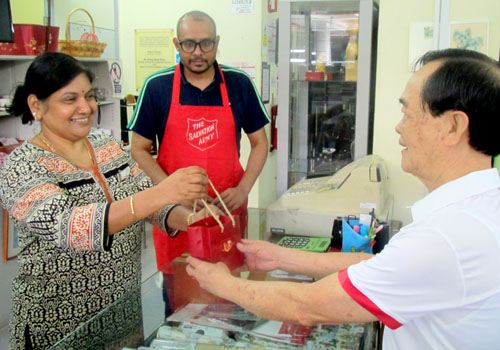
The Humanist Society would like to encourage humanists in our community to join our Peer Support Programme. Together, we can support each other, learn more about mental health, and become stronger, more compassionate, and happier individuals.




